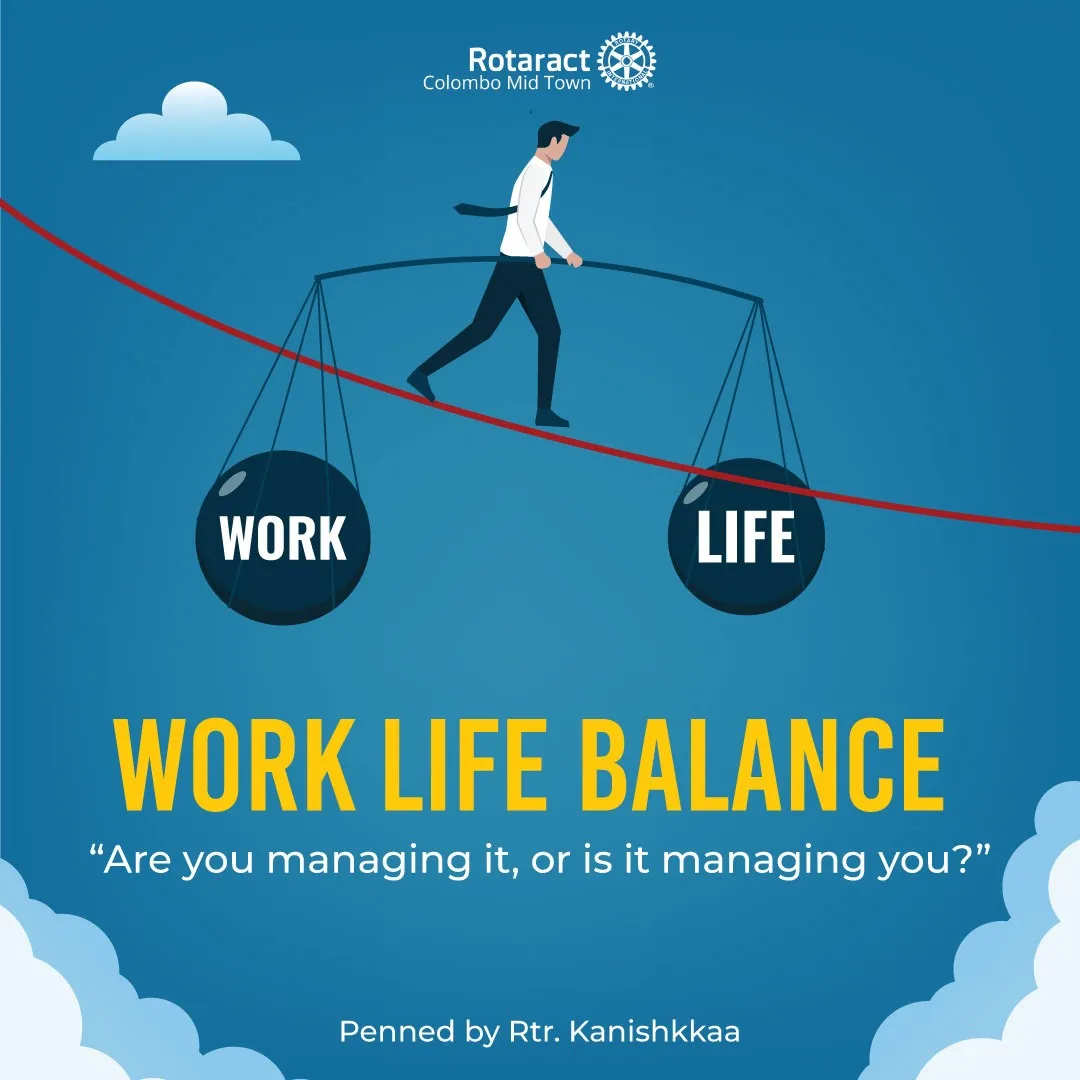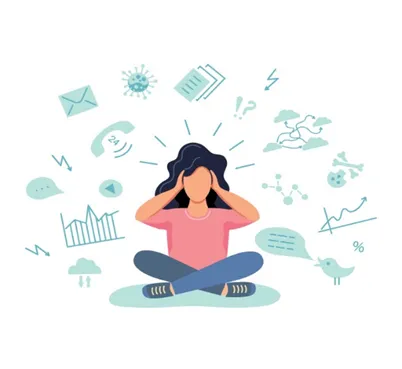So, how will you start creating that balance today?
Work-Life Balance: Are You Managing It, or Is It Managing You?
August 31, 2025
Rtr. Kanishkkaa Thrunavukarasu

How often do you find yourself replying to work emails late into the night or sacrificing personal plans for a deadline? In today’s fast-paced world, many of us struggle to draw a clear line between our careers and personal lives.

The concept of work-life balance isn’t just about splitting your time equally between work and leisure — it’s about creating a harmonious blend where both can coexist without causing burnout or neglecting what matters most to you. So, the real question is: Are you truly balancing work and life, or are they constantly competing for your time and energy?
1. Ever felt mentally drained?
That’s because your brain isn’t a machine — it needs downtime to recharge. Failing to maintain a healthy balance can lead to burnout, resulting in decreased productivity, creativity, and even emotional exhaustion.
2. How about your relationships?
When was the last time you spent quality time with your loved ones? Those moments of connection and relaxation are crucial. Without them, work can take over, leading to strained relationships both personally and professionally.
3. Your health matters too!
Have you noticed the physical toll of a nonstop work schedule? Headaches, back pain, or even more serious conditions like high blood pressure could result from ignoring your body’s need for rest and recovery.
So, why should you care? Because without balance, both your career and personal life could suffer in the long run.
How Can You Achieve Better Balance?

Now that we understand the risks, let’s focus on what we can control. Achieving a healthy work-life balance isn’t impossible, but it requires intentional actions. Here are some practices to help you stay on track:
1. Set Clear Boundaries — Do you know when to switch off?
Establish a clear start and end to your workday. It’s easy to stay plugged in with notifications constantly pinging, but setting boundaries is crucial. Turn off your work emails after hours and resist the urge to check your phone during family time.
2. Prioritize Your Time — Are you managing your tasks, or are they managing you?
Not everything on your to-do list is urgent. Learn to prioritize. Use tools like task managers, set realistic deadlines, and focus on high-impact tasks. When you control your time, you avoid the trap of working late to “catch up.”
3. Communicate Your Needs — Have you talked to your manager about flexibility?
Many workplaces today offer flexible hours or remote work options. Don’t hesitate to have an open conversation with your manager if you feel overworked. A simple adjustment in your schedule could make a world of difference.
4. Take Breaks — Do you step away from your desk throughout the day?
Your body and mind need regular breaks. Whether it’s a 5-minute stretch or a short walk, stepping away from your desk can help you reset, boosting both your mental clarity and physical energy. How often do you take breaks?
5. Nurture Your Passions — What do you do outside of work?
Having something to look forward to after work — a hobby, a workout, or even just a quiet moment to relax — can help you shift gears and recharge. Life isn’t just about work. Are you investing in your passions as much as you invest in your career?
Start Small and Stay Consistent
Work-life balance doesn’t happen overnight. It’s about building habits that support your well-being and making choices that align with both your professional and personal goals. Begin by implementing small changes — set clearer boundaries, take regular breaks, and reconnect with what matters most to you.
The beauty of finding balance is that it’s not about perfection; it’s about progress. Every step you take toward a more balanced life will positively impact your mental, emotional, and physical well-being.
